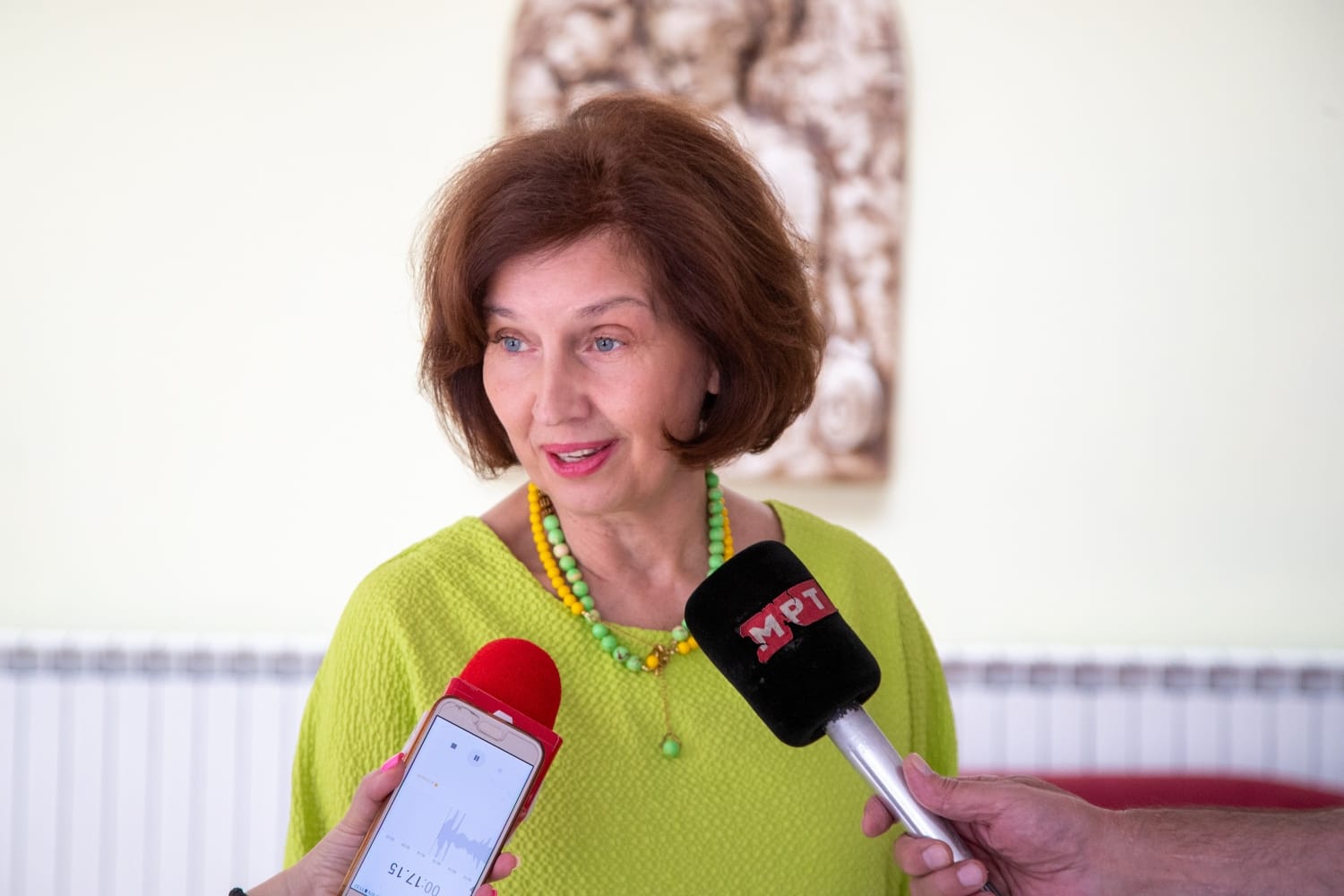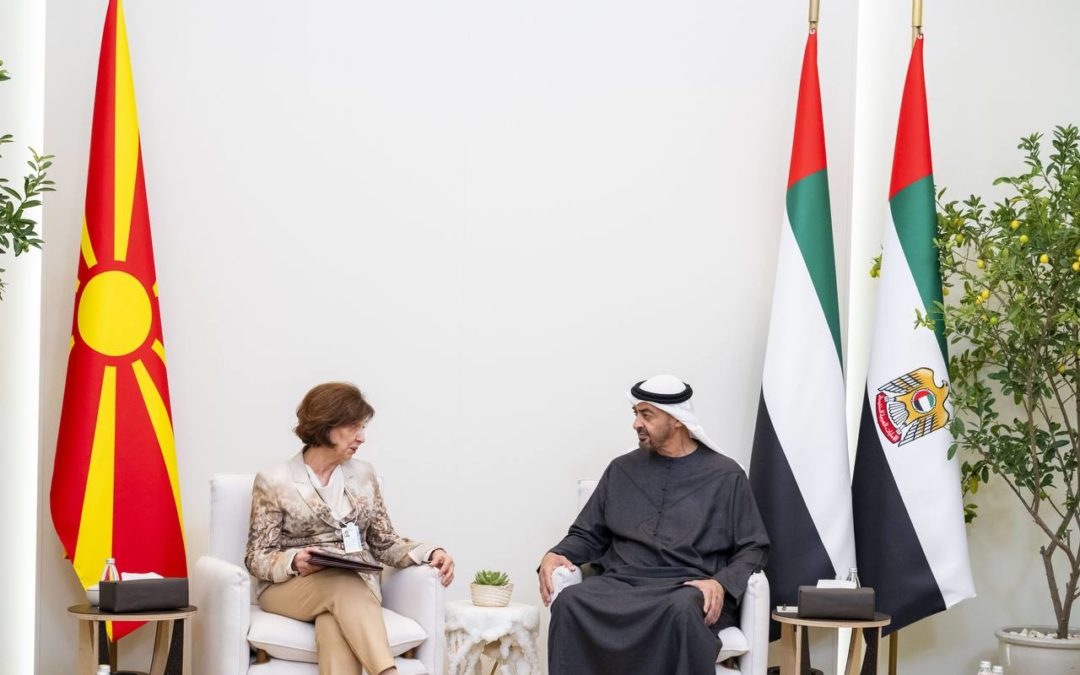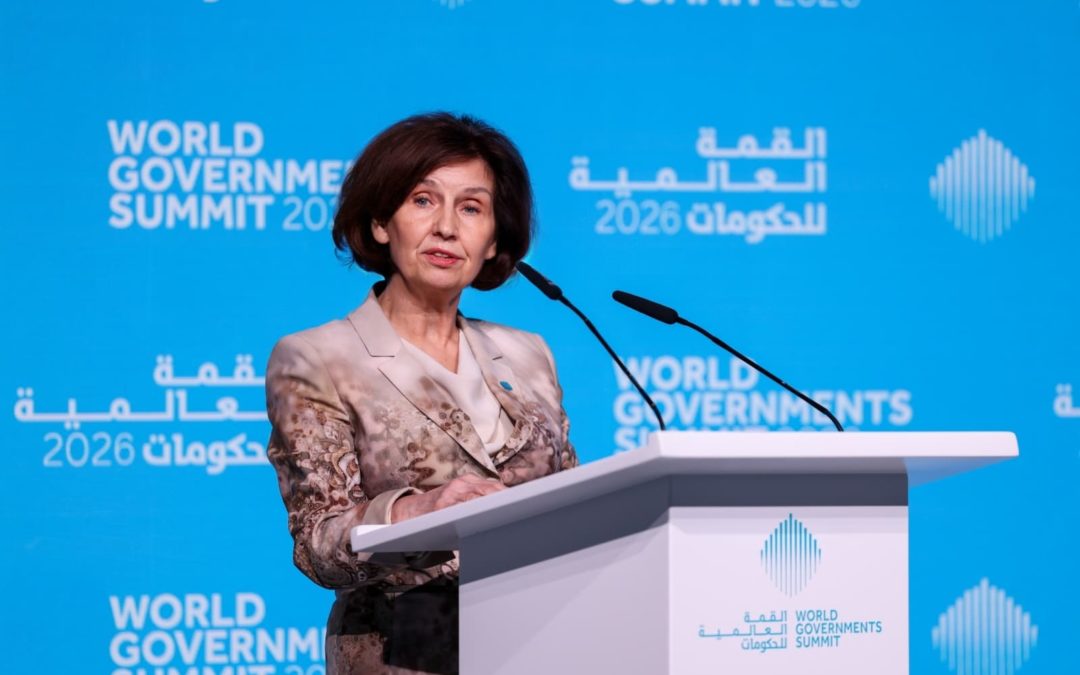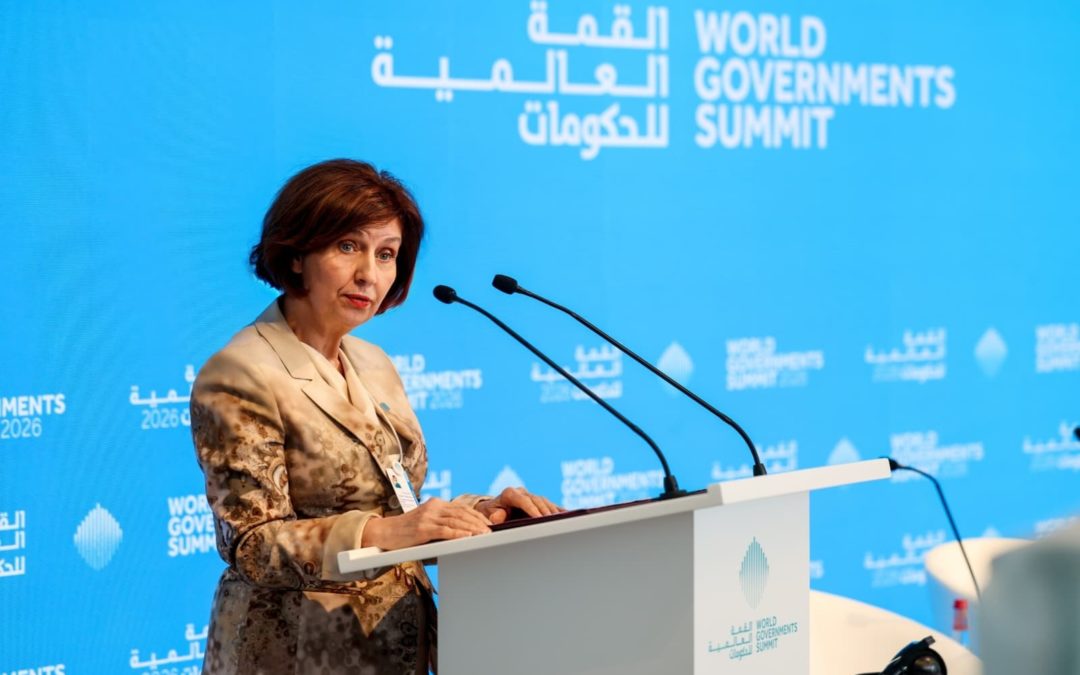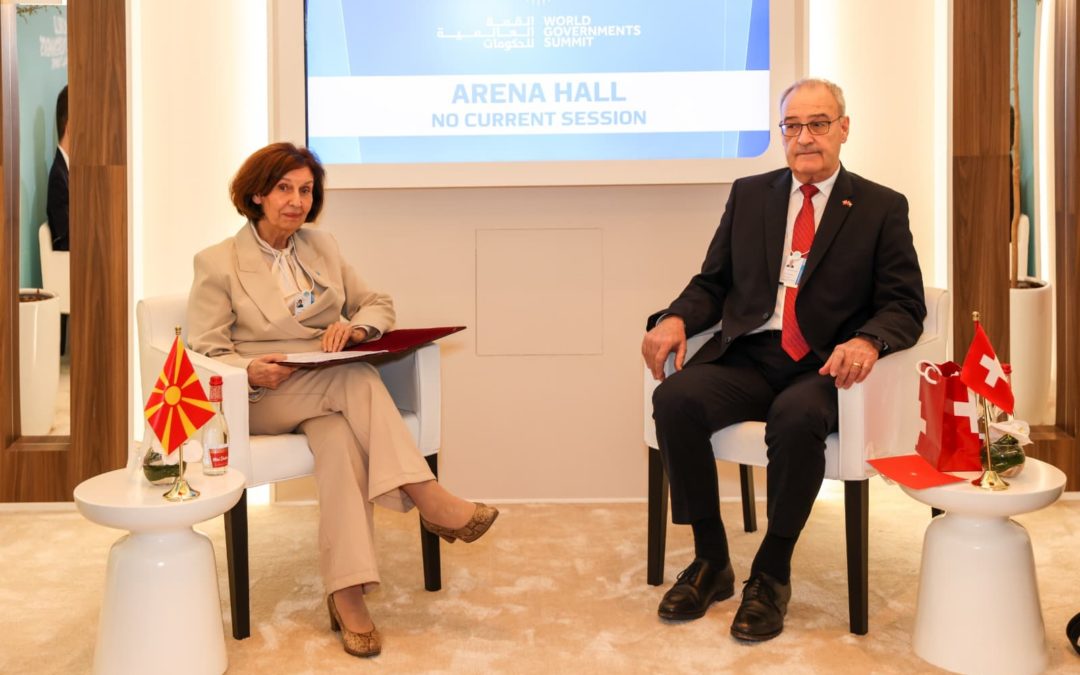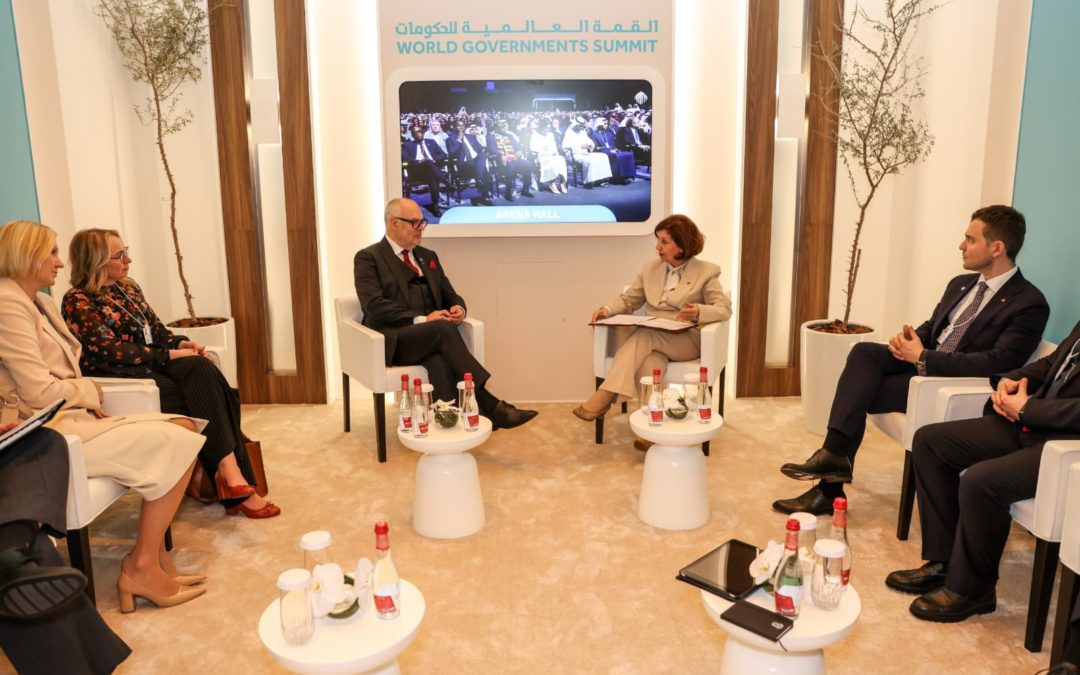Question: The Macedonian language, identity, we are brought into a situation to defend what is ours. How do you perceive this?
President Siljanovska-Davkova: As a meaningless move, as an uncivilized move, as an anti-historical move, as a move that is contrary to the basic principles and values even of the European Union, because both the EU Treaty, the Lisbon Treaty, and the Charter of Fundamental Rights guarantee that the national and cultural identity of every people will be respected, because that is part of the right to self-determination. However, there is no greater proof of the meaninglessness of such claims than an event like the one today. Today, as you know, for the 58th time people from all over the world will gather, this year 60 participants from 17 countries. We have lectorates in 11 countries, we have had more, the number is growing. For example, a new lectorate has already been opened in Naples, and one will be opened in Slovakia as well.
Today, we will all speak Macedonian, but not everyone will understand us in Macedonian. Blaze Koneski used to say that the language is the homeland, and Bernard Shaw, the famous Irish playwright, says that you can change everything but the homeland. So, in this case, with the Macedonian studies, with the Macedonian language, with the Macedonian identity, many, many philologists, linguists and Macedonianists agree or become part of us.
What can I say, these are outbursts of nationalism and chauvinism, and if we are surprised by some things, for example, I wonder how we could have allowed a war to happen to us in the 21st century, in Europe, because the European Community is a peace project, the United Nations is a peace project, and we are witnessing a war. Whenever there is a crisis in terms of morality, in terms of ethics, a crisis of peace commitment, we see that there are also outbursts of nationalism.
These are some relics that do not correspond to modern society and just as I hope that we will soon put an end to the shameful war, I also think that we should put an end to such disputes. They do not speak about us. Neither about the Macedonian language, nor about the Macedonian nation, nor about the Macedonian identity.
They speak about some historical frustrations, unfortunately of… I do not say of peoples, I suppose of politicians, who think that in this way they can score points. So, it is high time for an end to that concept of realpolitik, according to which the strong do what they can, and those in the EU think that they are strong, in relation to their neighbors, and the weak do what they have to. What does humanity need?
Question: There is a background thereto and now we are brought into a situation to defend what is ours.
President Siljanovska-Davkova: Yes, let me prove that I am a woman or let us prove that we are Macedonians. That is why I think that in the 21st century, science must be based on evidence, that is why I did not raise the :Abecedar” out of spite, but rather, and I keep saying that if there is 100 years of the “Abecedar” that is not printed in Skopje, it is not, but it is printed in Athens. 100 years ago, unfortunately, there was a struggle for a Macedonian state, but there was no independent and sovereign Macedonian state, but there was a language. So, who asked for that and who got that in Greece? The League of Nations, the famous diplomat Chamberlain, the Secretary of the League of Nations, Drummond, so they asked for Macedonian children to learn their own language.
And I often say this when I hear such denials. Open the Book and read inside whether it is Macedonian or Bulgarian, I think it is clear.
Question: Will Bulgaria persevere or retreat? What do you expect?
President Siljanovska-Davkova: I do not know what to expect, because what happened, and the most painful thing is what happened in the European Parliament, which is supposed to personify the European demos, the European citizens, to hear denials and hate speech, means that reforms are also needed within the framework of the European Union. If it is any consolation, those who used hate speech are members of parliament from the extreme right.
Now imagine, so in the European Parliament there are representatives of parties that are actually against the European Union. That is something paradoxical, someone will say, yes, freedom of political association, freedom of expression, however, hate speech must not be allowed in the European Parliament. What do I expect? I expect some politicians to follow the example of our colleagues who we will meet here today, yes, top Bulgarian writers, poets, translators.
There is no greater proof that, as he said on one occasion, if you remember the translator Plamen Totev, when he said that he most likes to translate from Bulgarian to Macedonian and vice versa, why? Because of the finesse, because of the details. Because he knows both languages and as he says, well, the development of the Macedonian language is similar to the development of Bulgarian or other European languages. There is nothing different.
The difference is only in the wrong political perception with some people who are buried in the past and still think they can bring back the “glorious past”. But that past is dark.

